Detroiters Hope for More Jobs, Inclusive Investment as Election Primary Looms
An informal survey finds Detroit voters facing city primary elections with jobs and development on their minds.
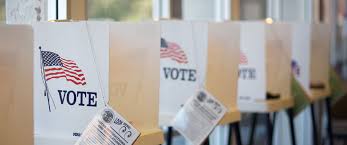
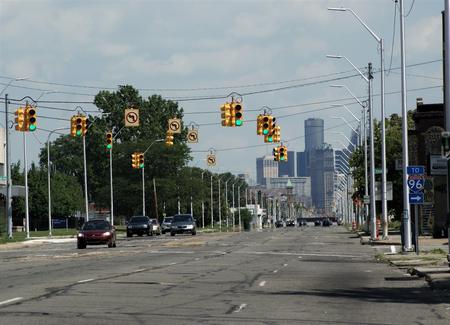
Detroit voters are preparing to select the finalists who will vie for key elected positions during the city’s November general election.
The marquee contest in the city is the race to become Detroit’s mayor.
WDET’s Quinn Klinefelter conducted a very unscientific survey of voters across the city’
He asked them about their views of Detroit’s progress and the qualities they would like to see in a mayor.
Northwest Detroit resident John Anthony says he thinks the city is on an upswing.
“People talk about things going on downtown and nothing in the neighborhood and what not,” Anthony says. “But it has to start somewhere. The Individuals that are making major steps, the Gilberts, the Illitchs, the Penskes, Karmanos, anybody that’s making contributions like that, just stand behind them and help move this thing forward.“
Anthony adds, “If your (mayoral) campaign is based on race, what are you gonna do, okay? You’re in because the majority of the population is African American, you’re African American, what is that gonna bring African Americans and everyone else? What substantial issues are you gonna resolve as a result?”
“If your (mayoral) campaign is based on race…what is that gonna bring African Americans and everyone else? What substantial issues are you gonna resolve as a result?” — Detroit resident John Anthony
Detroiter DeVille Creighton says he’d like to see more attention paid to his neighborhood on the west side of Grand River.
Creighton says, “I just want them to show more love to the ‘hood. Because we can’t take this doggone Q rail to the ‘hood. Try to help out on that crime out there, besides that Green Light (program.) Just because somebody got shot don’t mean they’re gonna get stopped.”
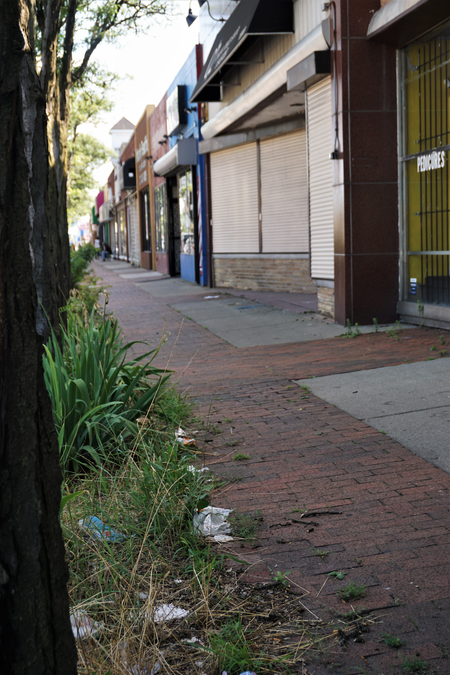
Geno Rossi says he’s lived in Detroit all his life.
“Started off in the Cass Corridor, then moved to southwest Detroit. I figure it’s like a suburb of Cass Corridor. In some ways it’s not doing too bad. But there’s a lot of problems and it has to do with a lot of the politics. They’re spending so much money down here for all these new venues. And that’s great for those who can afford to come down here and spend the big money. But for the people that are from around here, they can’t afford all of this. And then they get run out of places.”
Rossi says he’s also waiting for investment in Detroit to reach beyond the city’s downtown.
“When the mayor makes all these promises, just like other politicians do, but they don’t keep them, it’s depressing.”
Rossi says, “I think there’s a lot more he could do for the smaller neighborhoods. Because they seem to be going to hell. Some of these houses that need to be torn down, some of them are getting torn down. But I think that’s only because there’s so many complaints. And after a while you get tired of so many complaints. You’re going to have to do something just to shut the people up.”
Kris Coleman says she lives in Detroit near Eastpointe, where she says she moved after residing for four years in Las Vegas.
“I’m originally from here. It’s a little different,” Coleman says. “It’s much better than the way it was before I left. Lot of events are coming back, a lot of tourism is coming back in town. And that’s what we need right now.”
But Coleman adds, “What we need to focus on is homeless people. Everybody abandoning them. Streets are terrible, people ain’t got no jobs anymore. They don’t want to help anybody here. They giving excuses as the reason why they can’t help people. And I think that’s sad. Like, you got people that fought for this country and people just abandon them like they don’t mean anything to them. And I don’t think that’s fair.”
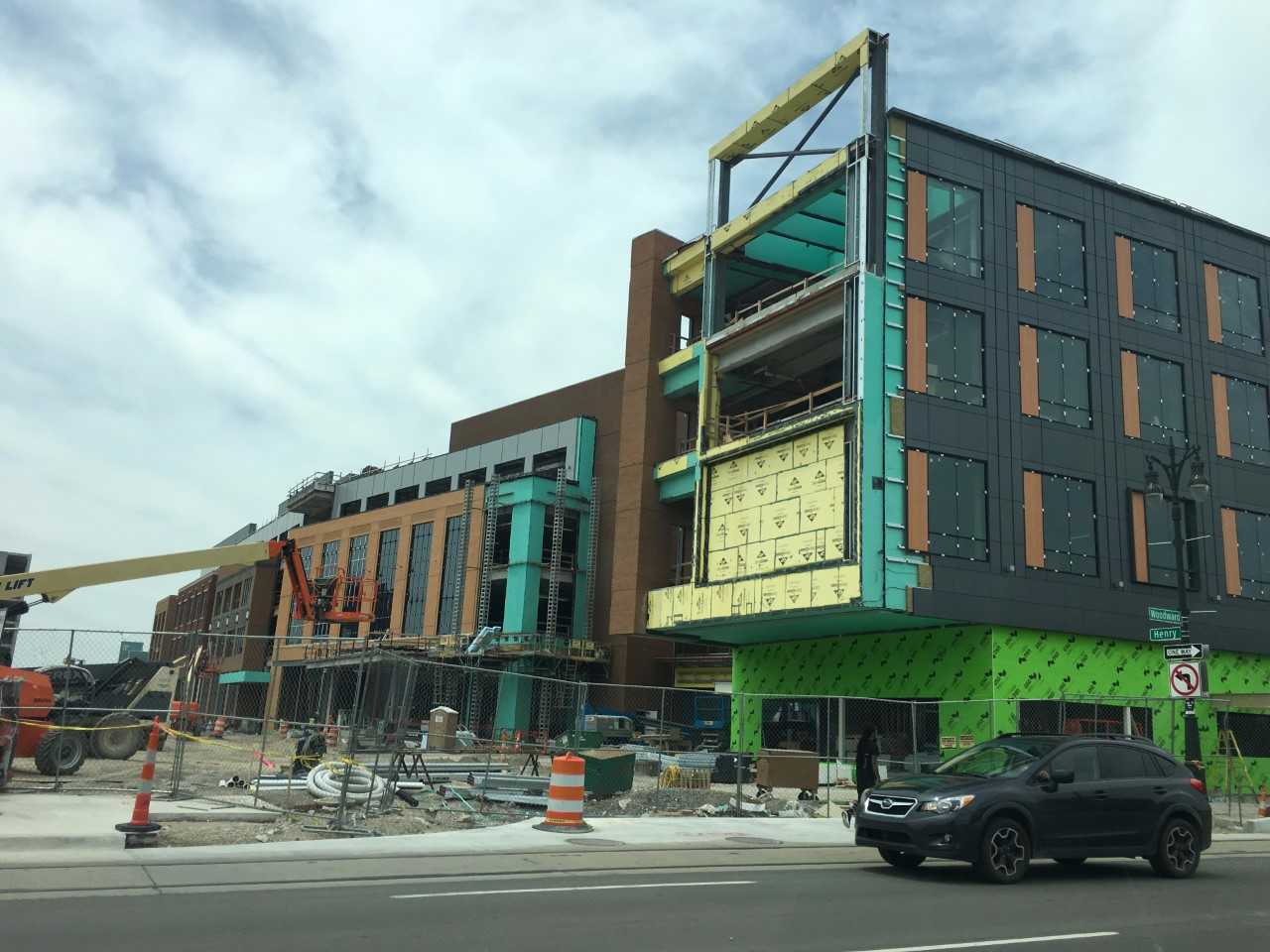
For Sage Smalley, Detroit is a fruitful place for fun.
“I live right by the Joe (Louis Arena) at the Riverfront apartments. Been here for three years now. So, like, every year you just see a lot of improvement. It’s crazy. I tell people pretty much the whole city is under construction. But it’s for the good. So, like, the next 10 years it’s gonna look like a completely different city. It’s gonna be awesome.”
“Just focus on bringing people into the city,” Smalley continues. “(It’s) Michigan’s biggest city, you gotta make as many attractions as possible. (Create) Different reasons to bring different cultures and point of views in. They have all kinds of different festivals down here, like jazz, that bring a different crowd in. The sports here, that brings a different crowd in. So you can see that they’re doing a lot of things already with just bringing, like, a lot of activity and a different type of people in.”
“Pay attention to the citizens of the city of Detroit. Those that have grown up here, gone to school here and are not just passing through because it’s a great place to come have their urban adventure.” — Detroiter Keith McCrary
But Detroiter Keith McCrary wonders if city officials are doing enough for the people who have stayed in the city through the good and bad times.
“It’s an old story. I would like to see them pay attention to the citizens of the city of Detroit. Those that have grown up here, gone to high school here, are not just passing through because it’s a great place to come and have their urban adventure. Pay attention to those who have grown up here and are going to stay here, those that live in the city of Detroit north of downtown Detroit,” he says.
McCrary adds, “Let’s have safe neighborhoods, let’s have great schools. I know the city of Detroit doesn’t control the school system, but they have some kind of input. A clean city, a safe city. Some investment to the degree that we had it downtown. I mean, all these businesses have come downtown, not because they’re volunteering to help Detroit, they got extreme tax breaks, you know. At the expense of the citizens of the city of Detroit. We gave a billionaire a quarter-of-a-(b)illion dollars to build a stadium. And now they’re talking about giving almost $35 million to help bring another team down here. What kind of money to that degree is going to the city of Detroit?
“We just built the QLine, almost a quarter-of-a-(b)illion dollars, for three miles. Everybody says it’s a great thing, that it’s doing something. But at what cost? What could we have done with that money citywide? Go to somebody who’s on the corner of, let’s say, Davison and Schoenherr, waiting on a bus right now, and ask them what they could’ve done with a quarter-(b)illion dollars that they spent on the QLine,” McCrary says.
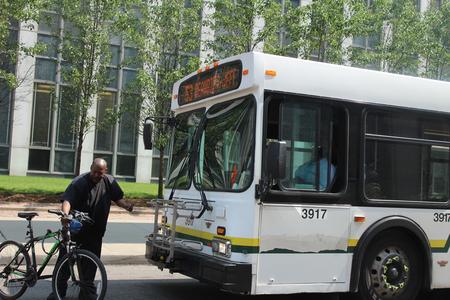
One Detroiter who says she regularly takes the bus is eastside resident Minyan Bacon.
“The buses are better,” she says. “But they could be more better. Running more efficiently, leaving on time, not taking, like, 20 breaks when I’m missing my other bus. Make them all 24 hours. Or at least run later than what they (do.) Which (happens) on some lines. But (do that) all across the board.
“And far as insurance, make it low. Because I do drive. It’s just that insurance is expensive because I’m a Detroit resident,” Bacon says.
And northwest Detroiter Mary Hartcourt says people she knows in the city don’t have that much income to spare on buses or anything else.
Hartcourt says, “The economy is picking up and they tearing down a lot of the vacant properties to make it look better. (But) bring in more jobs for the younger people and the old, because we gotta work too. Because our income is fixed and it’s not good. (There’s) a lot of restaurants and like that, but we need more manufacturing jobs or plants where you could make some money.”
